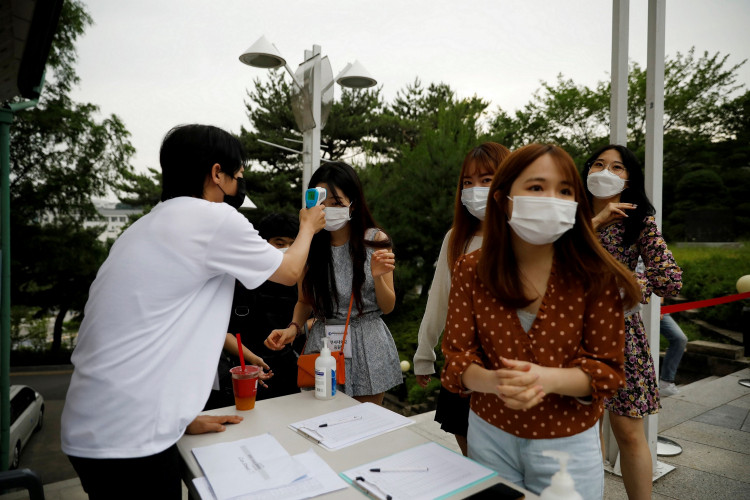Coronavirus cases in many Asian countries are on a decline, but cluster infections and cases of untraceable infections or those with unclear links are a stumbling block for South Korea and other countries still battling with asymptomatic cases.
Untraceable Cases Looming in South Korea
Over the past few days, new confirmed COVID-19 cases in South Korea have been declining as health authorities continue to carry out disinfection measures in the greater Seoul area, where the most recent cluster infections were detected.
However, untraceable cases are posing a threat to the country's goal of bringing its daily new case tolls to zero. The center of all attention is on the greater Seoul area, which is densely populated and is home to most of the local transmissions in the country for this month.
The South Korean health authority is looking to push the new cases toll back to a single digit but cases with unclear links or those that cannot be traced to a cluster's patient zero have made it difficult for contact tracing.
South Korea's contact tracing measures were previously on the spotlight in the global COVID-19 battle due to its early effectiveness in controlling the virus' spread.
On Monday, the country added 37 new confirmed COVID-19 cases, bringing the national tally to 12,121. The death toll remains at 277, with no new fatalities as of Sunday evening.
KCDC Granted with More Power amid Pandemic
Meanwhile, the Korea Centers for Disease Control and Prevention was granted with more power as the country continues to battle with the novel coronavirus.
The Democratic Party (DP) confirmed on Monday that the KCDC has been promoted to an independent administrative body that now has the authority to manage its own budget. It has also become an arm of the Ministry of Health.
The move came after intense debates due to fears that the KCDC may lose a major research department and may also be left with a smaller budget as well as fewer people to work under the country's COVID-19 battle.
Work Permit Holder Cases Still Singapore's Biggest Thorn
Singapore on Sunday reported 407 new confirmed coronavirus cases. 397 of the new cases were foreign worker dormitory residents as the city-state continues to grapple with cluster infections from the said group.
Work permit holders living in the said dormitories still make up for a large chunk of Singapore's cases over the past month. Sanitization measures and contact tracing have been carried out but the threat of asymptomatic cases is another problem that makes it hard for health authorities to control the virus' spread.
The Ministry of Health (MOH) also revealed that a Bangladeshi national who tested COVID-19 positive is the city-state's first imported case in a month.
The said patient arrived in Singapore on June 10 and at that time, he did not have symptoms related to the novel coronavirus. He was also not previously suspected of having the disease. However, his tests results released on June 13 were positive.
As of Sunday noon, Singapore logged a total of 40,604 confirmed coronavirus cases and 26 deaths.
Singapore Employment Drops to Record Low
As the city-state continues to fight against cluster infections among work permit holders, the total employment of Singapore dropped to a shocking record-low for the first quarter of 2020.
The Ministry of Manpower (MOM) revealed that the for Q1 2020, the employment record contracted by 25,600 after a previous victory during Q4 2019. Analysts noted that the shrinking of employment records came as the global economy shakes from COVID-19's effects.
Singapore was previously on the center of successful coronavirus bouts after it found success in containing the virus during its early days in the city-state. It remains to be seen how the coronavirus will continue to impact the Singaporean economy.





